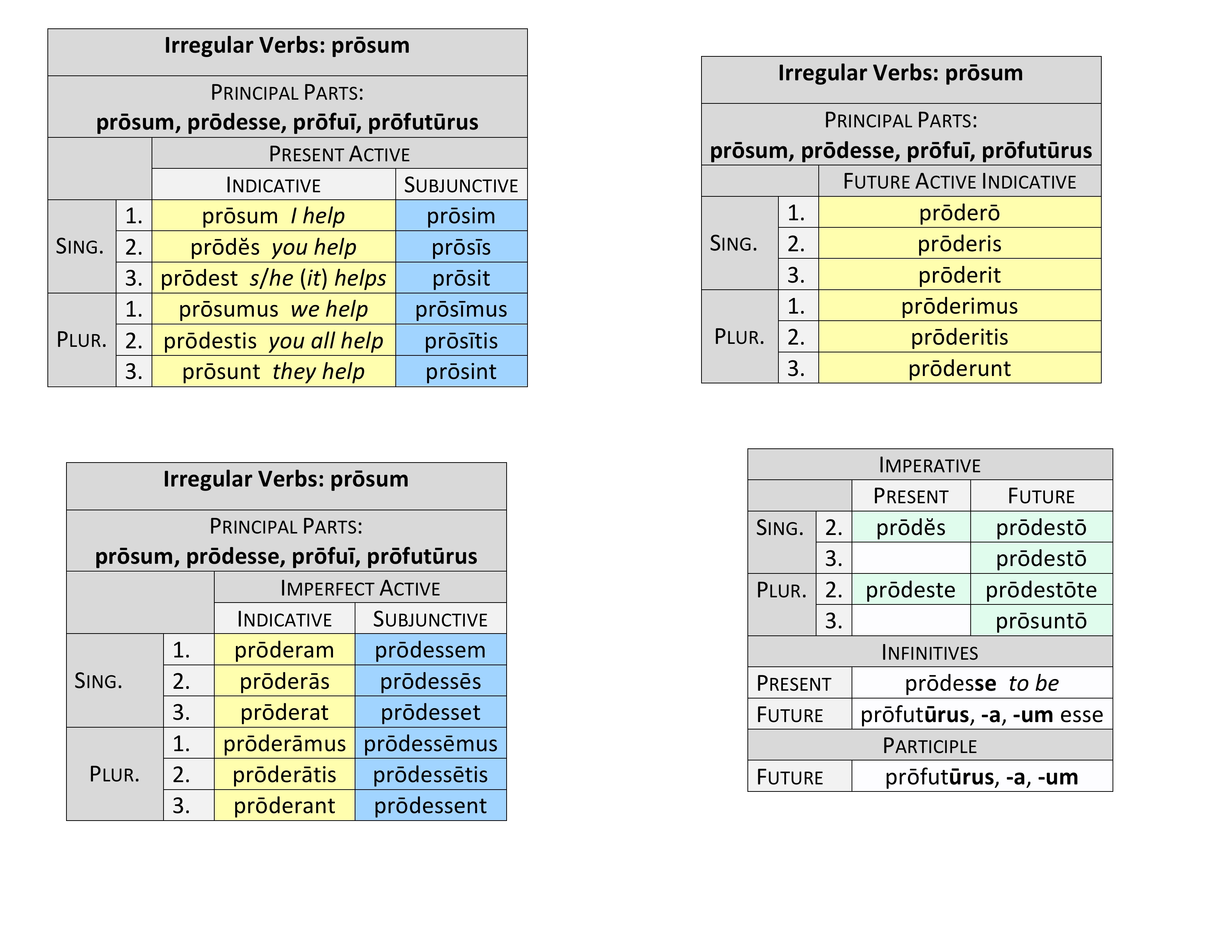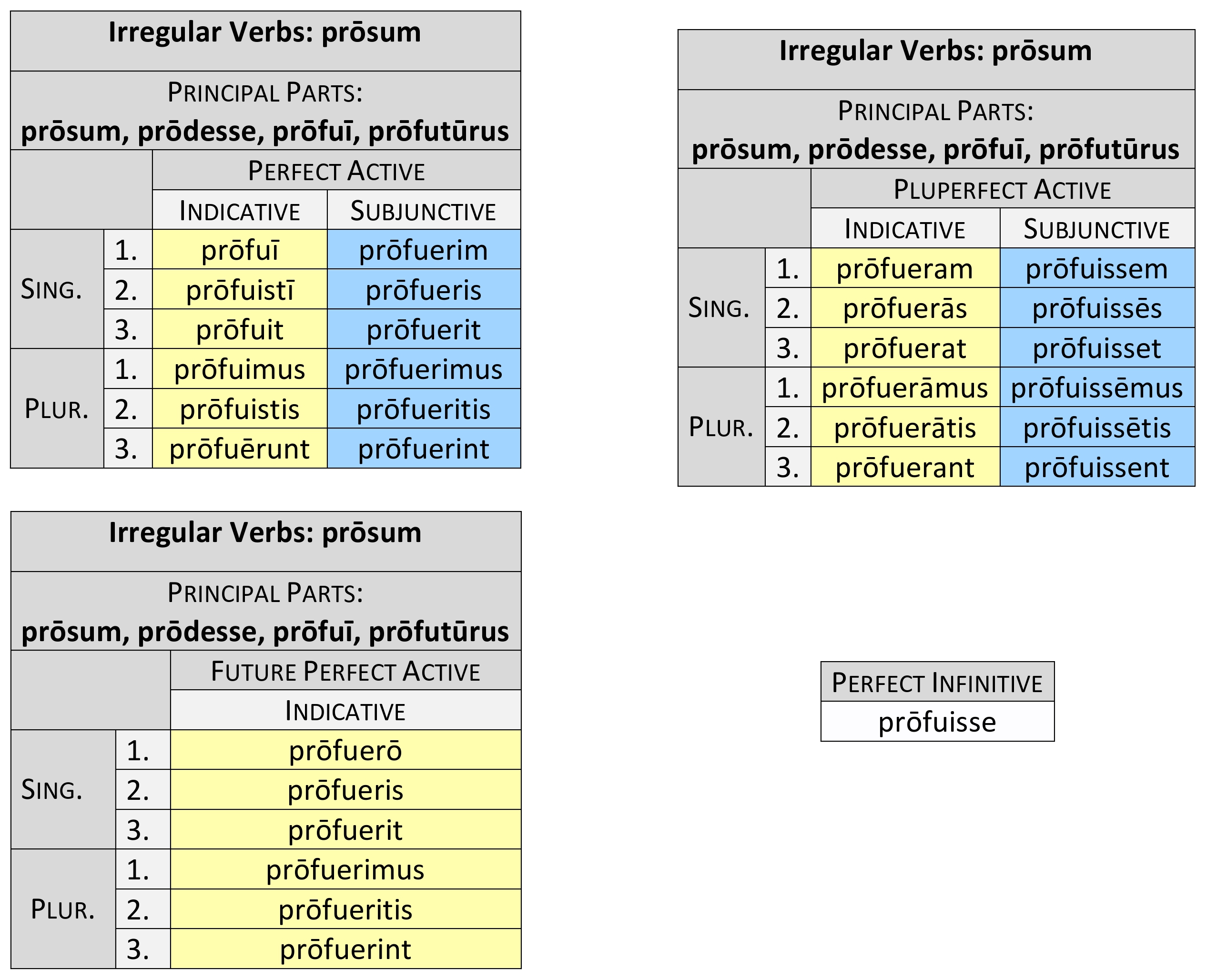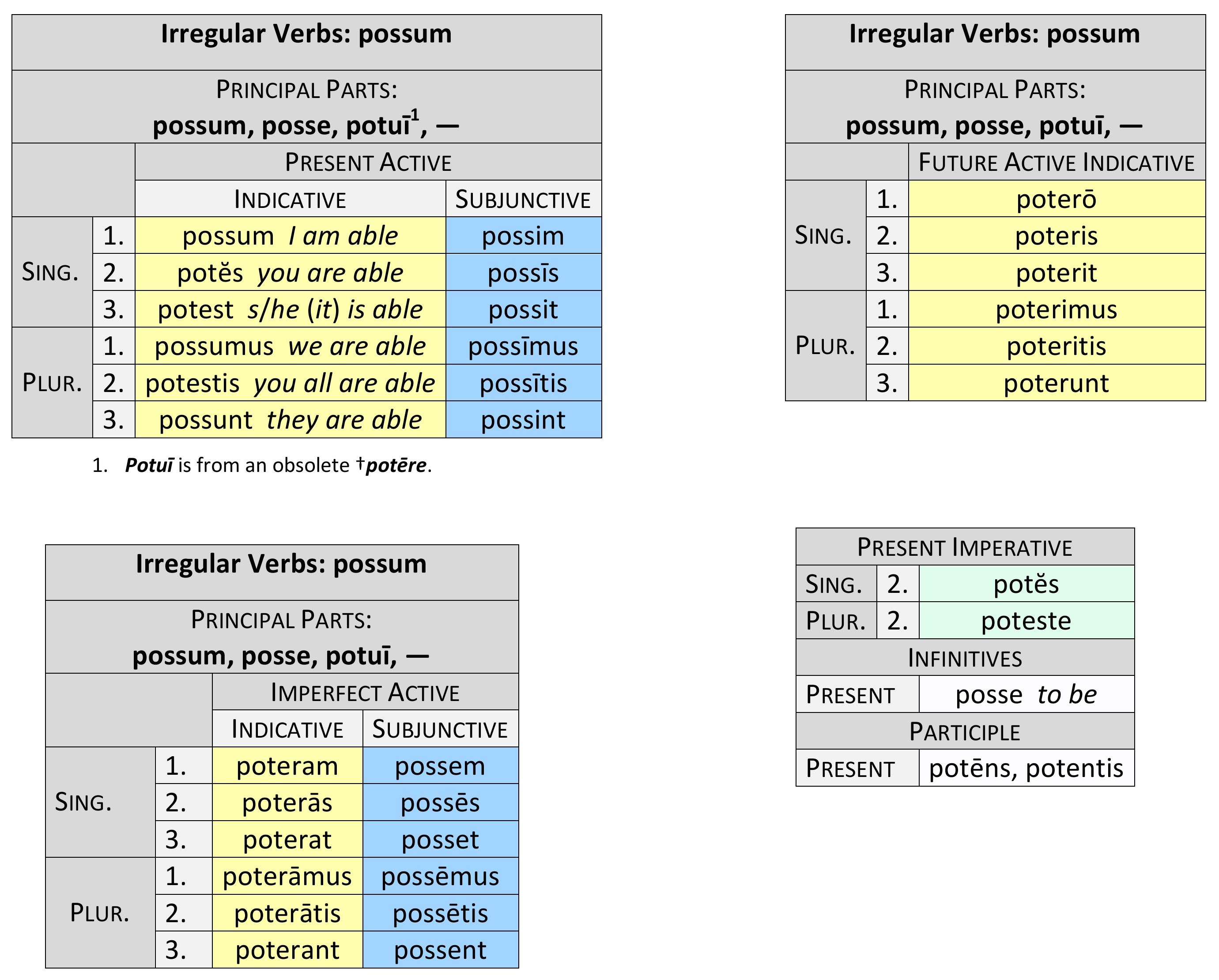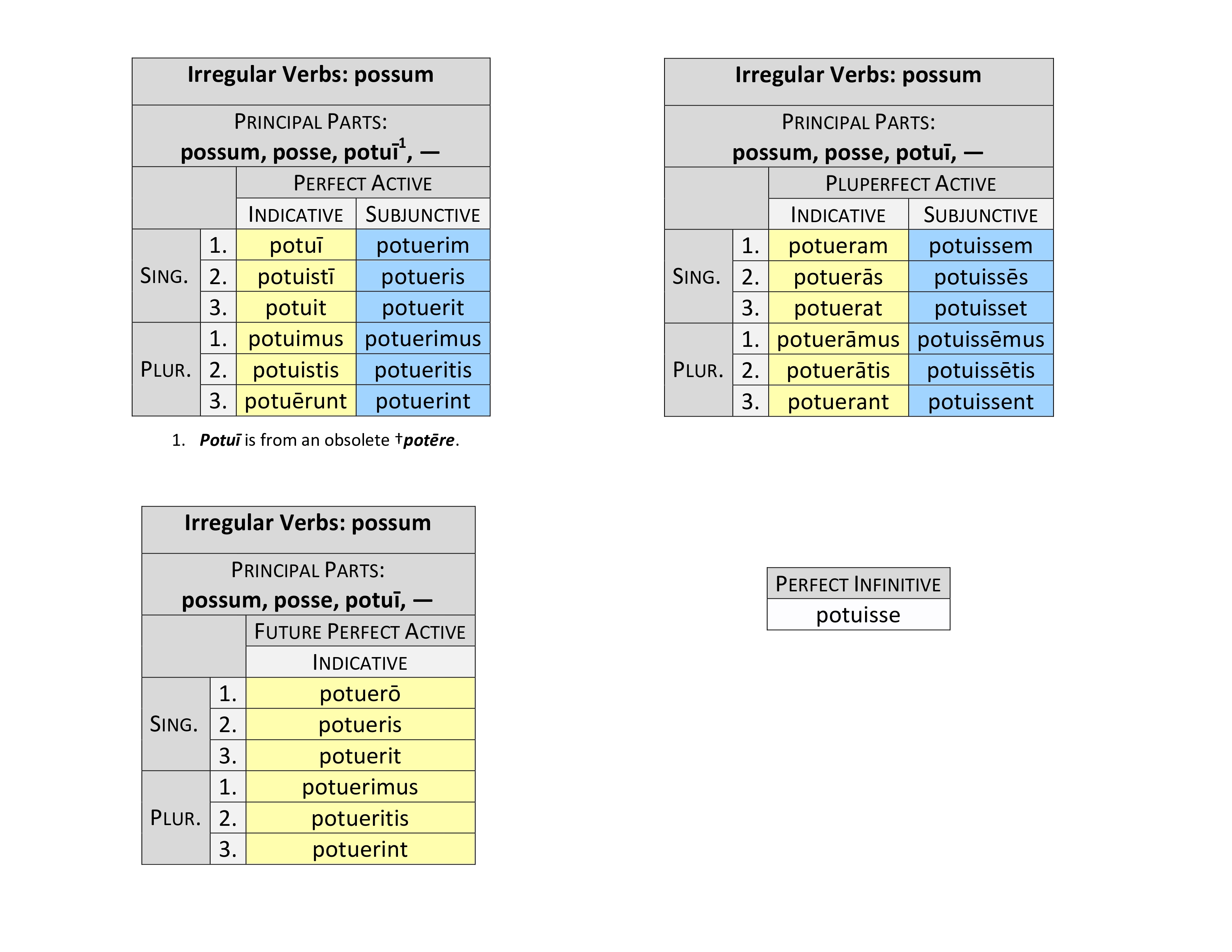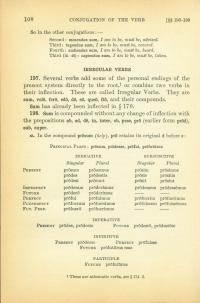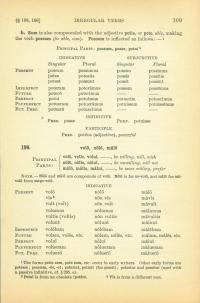197. Several verbs add some of the personal endings of the present system directly to the root,1 or combine two verbs in their inflection. These are called Irregular Verbs. They are sum, volō, ferō, edō, dō, eō, queō, fīō, and their compounds.
The conjugation of sum has already been presented in § 170.
198. Sum is compounded without any change of inflection with the prepositions ab, ad, dē, in, inter, ob, prae, prō (earlier form prōd), sub, super.
a. In the compound prōsum (help), prō retains its original d before e.
b. Sum is also compounded with the adjective potis, or pote (able), making the verb possum (be able, can). Possum is inflected as follows.2

